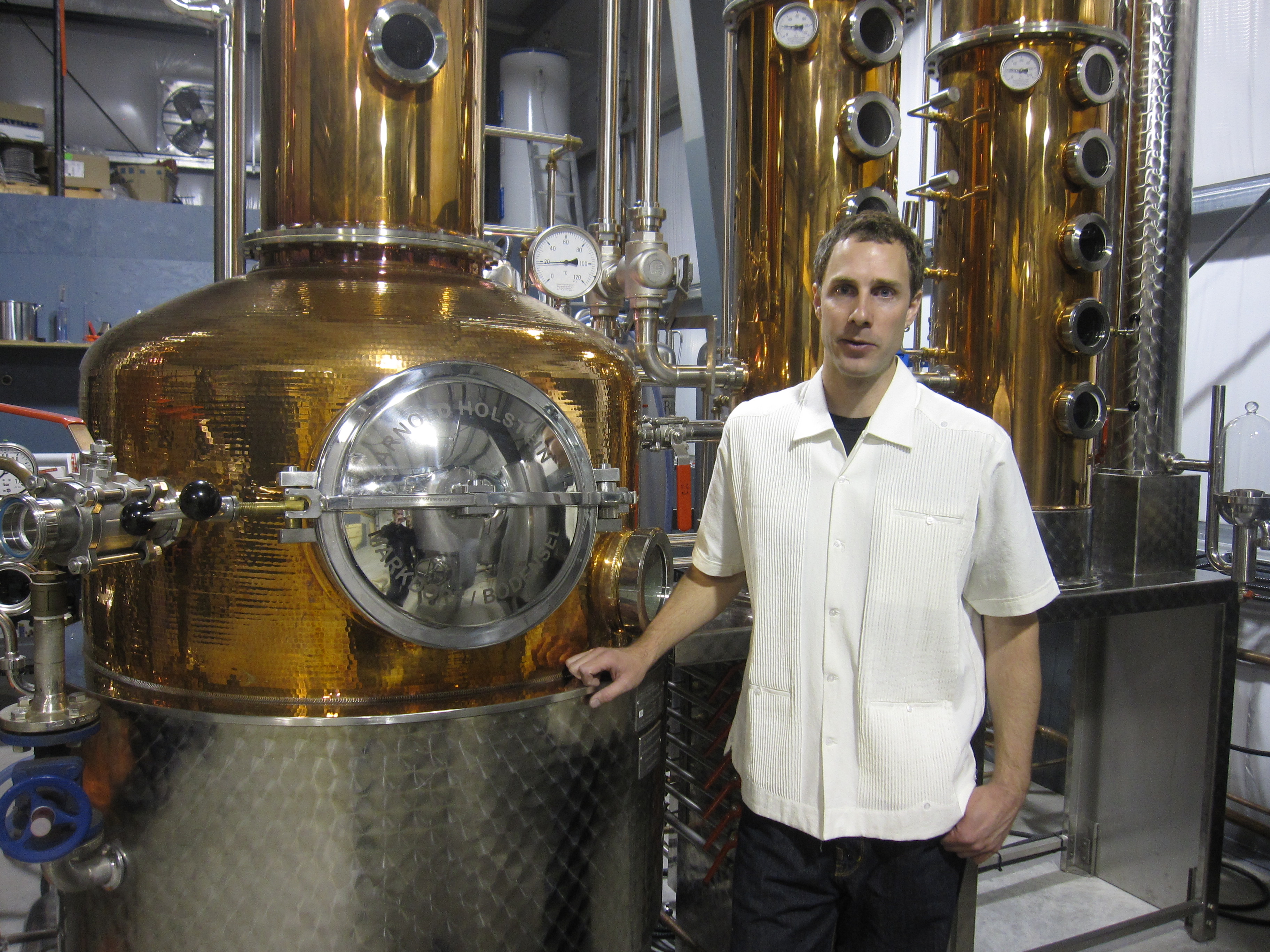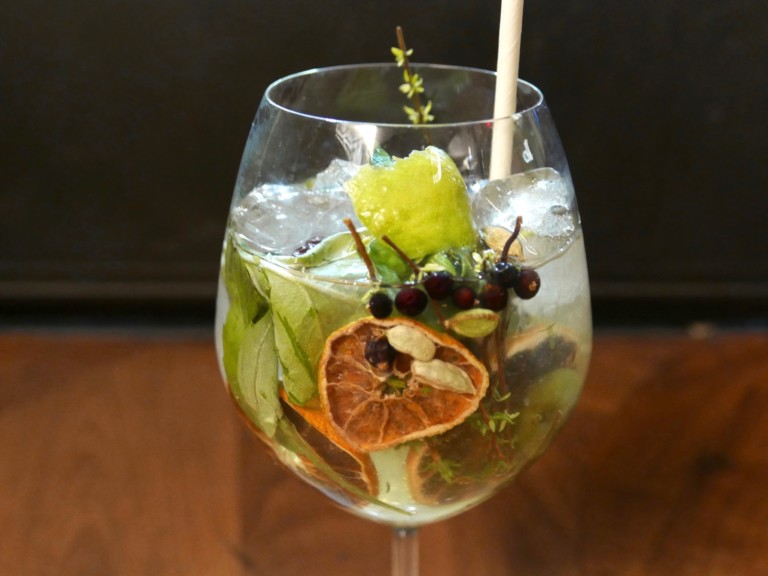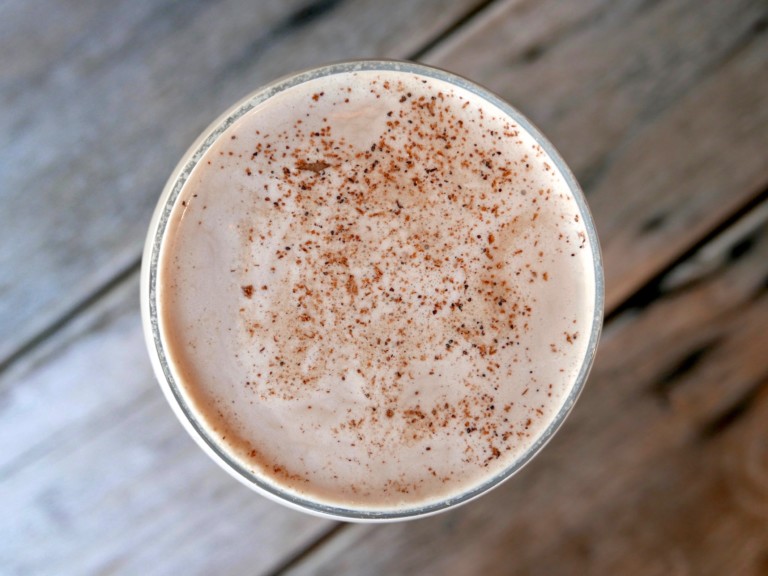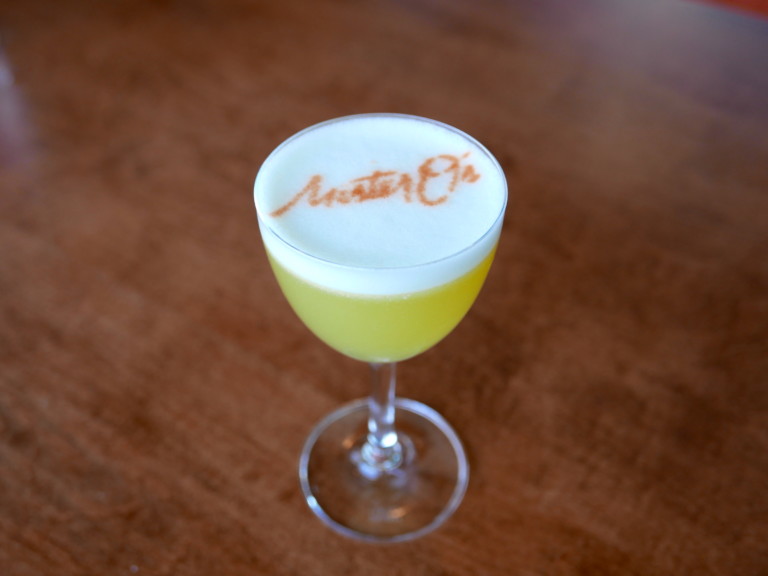Vancouver native Tyler Schramm was working at the top of Whistler Mountain when he had an epiphany. He decided to change careers, delving into distillation in nearby Pemberton, a hotbed for potatoes that inspired the family-run Pemberton Distillery. Schramm earned his Master of Science degree from Heriot-Watt University in Edinburgh, Scotland, home to the International Centre for Brewing & Distilling. He currently runs Pemberton Distillery with wife Lorien and receives plenty of help from brothers Jake and Jonathan, with additional assistance from other family members. They currently produce vodka and gin, and intend to release a single malt whisky in 2015. We recently visited the Pemberton Distillery and tasting room, where the Schramms shared their vodka and gin, and he better explained his background and approach.
How did you become so interested in distilling vodka?
Initially, potatoes were growing on the farm 10, almost 11 years ago. Potato prices at that time were dropping and we were talking to the farmer about what else you could use potatoes for, and we ran through a few different ideas, potato chips and French fries, and vodka was kind of the idea that stuck. After that I kind of went looking for potato vodkas, because there were not many out there. And there was a period in the ’90s when potato vodka was seen as an inferior product. In the late ’90s, Chopin, which is a potato vodka which has been around for quite awhile but for a long time wasn’t widely distributed, in the late ’90s, broke out into the North American market. It’s a very high quality potato vodka. I found that, and it just showed me how a potato vodka could really be a high quality spirit. That, in combination with wanting to do something with potatoes. I’ve always had an interest in agriculture, and tasting a really good vodka made from potatoes led to this eventually.
What’s your first vodka memory?
That’s a tough one. That was a long time ago. I’ll have to think about that. Most of my vodka memories come from being in Scotland. I went over there in order to do my Master’s Degree, and I knew this is what I wanted to do. I got heckled a lot by professors in Scotland. Whisky’s the end all and be all, and doing a vodka’s a crazy idea to them. I would spend time in the lab, and part of my Master’s dissertation was doing a comparison of grain vodkas and potato vodkas. I ended up having to get a whole range of different vodkas and set up taste panels where I invited professors and students, to a similar time to this, 10:30 in the morning, to come, sit down and do a range of taste testing. That’s probably my most lasting vodka memory, is having a room full of people tasting vodka at 10:30 in the morning and getting feedback. Vodka’s quite a challenging spirit for people to taste because, even though we’re doing a classic sipping style vodka as opposed to a neutral vodka, it’s such a subtle flavor. Especially when you’re tasting neutral vodkas, to pick out subtle differences, and often, it’s the feel that’s different to them. Just getting the feedback, that was an interesting process.
Would you say that you have any mentors when it comes to distillation?
I suppose Frank Dieter, who runs Okanagan Spirits, which was the first micro-distillery to start in B.C. He’s been really helpful, and he’s really been pushing for the industry to grow in B.C. Early on, I read about his story and the challenges he went through even getting a license to start his operation. He’s been a bit of an inspiration for sure.
What was the space before?
We built this from scratch for this purpose.
Where are you from originally?
I’m from Vancouver. I spent a lot of time in Pemberton as a kid, both skiing in the winter and riding my bike in the summertime. It’s always been a bit of a second home for me.
What were you doing for a living before starting Pemberton Distillery?
Before I went to Scotland, I was working for Doppelmayr. They build chairlifts on Whistler Mountain and I actually made the decision to go ahead and do this when I was at the top of Whistler Mountain.
Is there any comparison between building lifts and making spirits?
For sure, there are. Putting this [still] together, I definitely tapped into my experience. I had worked for Doppelmayr a couple of summers in the past when I was going to university, just working on big projects, it really helped to pull this all together. We assembled the stills ourselves, and just picked up a lot of mechanical knowledge. We worked a lot of long, hard hours, and there are a lot of hours that go into distilling as well, especially at this scale. It’s all done by hand, so yeah, it definitely helps.
Why gin and whisky?
Whisky was always part of the plan. I knew with potatoes, we’d only have a season with them, and then we’d have a season where there was a gap. When I went over to Scotland, I was not that interested in whisky, especially single malts, and I guess one of the unique things about being in Scotland is the university I was at had a single malt whisky club that was run by the students and funded by the Student Association. Every Friday, they would get four bottles. There was an undergraduate program as well as the Master’s program, and the undergraduates were in charge of the Single Malt Whisky Club, and a couple of them worked in some of the bigger whisky stores in Edinburgh, and they would buy four special bottles of whisky, and I decided to join. Pretty much the first Friday that I went, I fell in love with whisky. Early on, it became part of the plan to do a whisky as well as the vodka. They worked well with each other.
The gin was a little bit of a different story. I initially had no intention of doing a gin. In late January, we were talking with one of the chefs from one of the restaurants in town here, and he’s from France originally, and he was telling us about some of the genevers in France and he had spent time working in the Alps and how each different area had its own unique genever, which is very similar to a gin. He said that juniper – which is one of the key ingredients in gin – grows wild and is locally available, and that kind of led us – my wife and I, it was kind of a joint idea – led us one summer, that we would go and collect juniper berries wild and try doing a gin. We got to about the first week of February, and I guess our patience ran out. We found a company in Oregon that has all the herbs and botanicals, certified organic, that we’d been looking for. That second week of February, we decided to go ahead and buy a batch of juniper.
What other botanicals did you use, and how did you decide which to use?
We did a lot of searching and just sort of looking at what other people are doing. Especially in the U.S., there are a lot of micro-distilleries making some pretty interesting gins. We settled on something a little bit more classic, London dry gin, but go with a medium gin. Most of the standard, store bought standards we refer to as mild gins. We decided to do a medium gin, so a little bit more intense on the juniper character, but sort of stick us to the traditional style. That led us to going with juniper, coriander, angelica root, orange peel, rosemary, rose hips, and my brother grows hops, so we decided to throw some of our own hops in. We’re using Centennial, which is sort of a classic Pacific Northwest style.
Do you brew beer too?
I do. I homebrew.
What similarities do you see between breing and distilling?
It’s actually very similar, up until we start distilling. We’re basically brewing a potato beer. It’s essentially the same process, especially with a single malt whisky, you’re starting with 100% malted barley. Once you get on the distilling side, it changes a little bit, but they definitely share a lot of the same elements, for sure.
What do you like to brew at home?
I’m a big fan of sales, so I brew mostly ales. I typically do a darker ale. I like both Irish and Scottish style ales. Those are the typical styles of beer that I would drink.
What’s your preferred method of consuming your spirits?









Blog Comments
Gill Ferguson
June 15, 2011 at 12:40 AM
Terrific article , hope to get to Pemberton & tour the distillery in the very near future . I’ve heard it’s an amazing vodka that won serious awards in Austria.